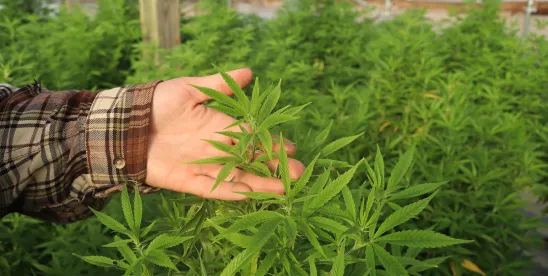They paved paradise and put up a parking lot. That’s been the tenor of what I’ve heard and read from stakeholders in the Alabama hemp industry in response to the enactment of comprehensive hemp reform legislation earlier this month. And for reasons I will explain below, I am extremely sympathetic to anyone whose livelihood was negatively impacted by the legislation (although some actors are probably more sympathetic than others).
But, I’ve had a couple of weeks since the close of the Alabama legislative session to think about the comprehensive hemp legislation that significantly reformed Alabama’s hemp policy. I’ve had numerous conversations with hemp operators. And I’ve had the good fortune to talk to the good ones, which brings with it the sad duty of informing them that many of their unsavory competitors in the space have created an ecosystem that may no longer allow them to survive in business.
I also had a chance to catch up with an old colleague and friend with rare intellect and deep connections to the cannabis industry. I’ll spare his name here because he would probably rather avoid the disrepute of being mentioned in these quarters of the internet, but he’s the smartest and most thoughtful cannabis lawyer and consultant I know. While we were talking about the legislation, he turned to me and said, “Do you realize how remarkable it is that in a state like Alabama you can now walk into a store and legally purchase 40 milligrams of THC?” And I had to admit I could not have imagined that being the case several years ago.
A quick rundown on the key points of Alabama’s hemp reform legislation:
- The top line is that consumable hemp products were not banned, as many had hoped/feared.
- The bill does, however, impose substantial limitations on how and where consumable hemp products can be manufactured and sold. For example, consumable hemp beverages may be sold at 21+ stores and certain licensed grocery stores and are limited to 10 milligrams per 12 ounce serving. Edible hemp products are also limited to 10 milligrams per single-serving doses and four doses per container. Of great significance to many, neither product can be sold at convenience stores (perhaps the largest point of sale for such products currently).
- Smokable flower is prohibited.
- A licensing regime has been put in place, and the Alcoholic Beverage Control Board has been tasked with regulating the manufacture and sale of consumable hemp products.
- Consumable hemp products will be subject to similar types of age-gating, testing, packaging, labeling, and advertising, as will medical cannabis products.
So, let’s get a few key points straight:
Although nearly (if any) hemp operator was totally satisfied with the result given the fact that points of sale have been reduced, those hemp companies who are still allowed to operate should welcome the fact that they have moved from a regime where their product was “not illegal” to a statutory regime that expressly allows for the manufacture, distribution, and sale of their products under strict testing and labeling requirements. That change should, by itself, open up shelf space in retailers that previously had been reticent about selling hemp products. That’s a huge win for those companies, and hopefully retailers and consumers as well.
Anyone selling high-THC products definitely drew the short straw here. The fact is, however, that anyone purveying those products in a state like Alabama knew or should have known they were on borrowed time. For those closely following the political winds, it was always going to be a short-term money play that would almost certainly require those purveyors to pivot when the laws almost inevitably changed as they have recently. The same goes for companies selling smokable flower, although it was perhaps somewhat of a less foregone conclusion that smokable flower would be banned.
If you are upset that connivence stores and gas stations are no longer allowed to sell consumable hemp products, I will tell you there was very little chance that the Legislature was going to allow business as usual for all hemp products in those venues. If you are looking to place blame, I have two suggestions: (1) the high THC products so readily available at so many stores and often targeted to minors and (2) the failure of stakeholders most interested in sales in convenience store and gas stations (and that includes both the manufacturers and the retailers) to put together a meaningful advocacy team to educate lawmakers on how they could have addressed the issue with a scalpel and not a sledgehammer. I know from personal experience that many such stakeholders were looking to other type of hemp companies with different agendas to foot the bill for that effort.
Conclusion
There is just so much a government can do to limit hemp to responsible adult use under specific circumstances and at specific locations. Alabama’s Legislature didn’t get it entirely correct, but it took steps towards striking a balance and hopefully will use future sessions to do even better.
I’ll close with some words from perhaps an unlikely source: Sen. Ted Kennedy. In this context, he was eulogizing his brother Robert, but I think it may provide some solace and motivation to those who seek a better policy:
The work goes on, the cause endures, the hope still lives and the dreams shall never die.
Thanks for stopping by.




 />i
/>i

